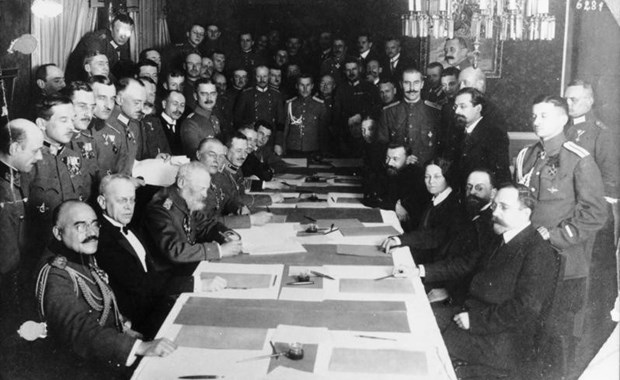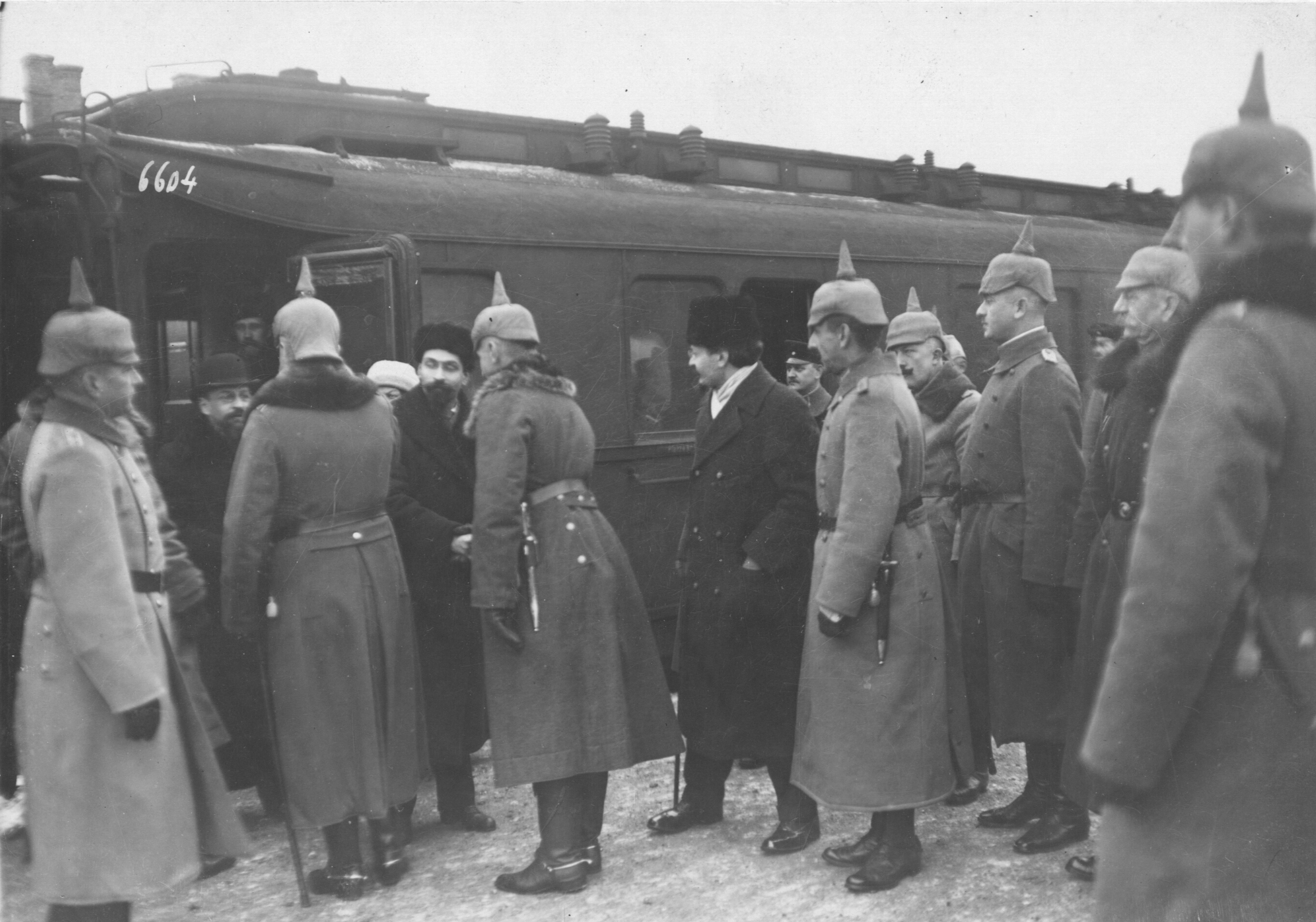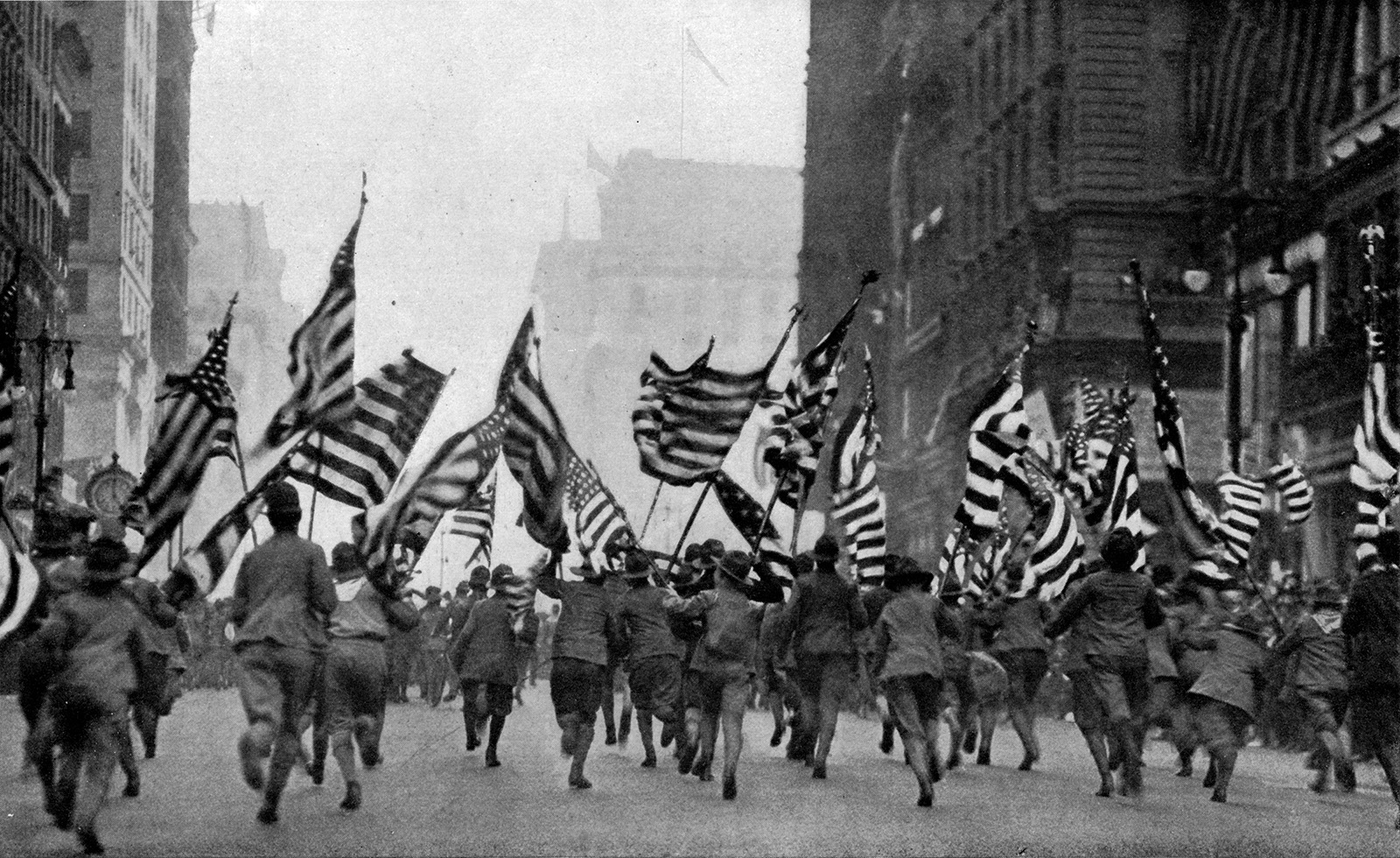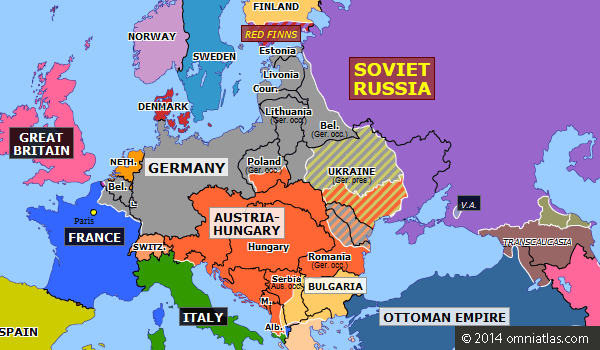With Russia Out of the War, Germany Now with the Advantage.
Britain Must Remobilize.
Special to The Great War Project
(18 December 2017) In early December a century ago, all the belligerents on the Eastern Front were discussing how to bring the war there to a close.
The negotiations are taking place involving Russia (the Bolsheviks), the Germans, Austrians, Bulgarians, and the Turks, reports historian Martin Gilbert, at the Russian town of Brest-Litovsk. “On December 17th “, the negotiators announced an end to all fighting on the Eastern Front.”

Representatives from all belligerents discuss peace at Brest-Litovsk,, December 1917.
“Russia was no longer a belligerent,” reports Gilbert. “From the Baltic to the Black Sea, the guns fell silent.”
“The Central Powers – Germany and Austria Hungary – were freed from the two-front war that had been their nightmare since 1914.”
The next step: the negotiation of a peace treaty.
But peace does not come easily for Russia. If she is no longer fighting with Germany, fighting breaks out, reports historian Gilbert, between the Bolsheviks and the Cossacks of southern Russia. The Cossacks have rejected the treaty the Bolsheviks have negotiated with Germany.

Germans greet Russians at Brest-Litovsk.
It was the first attack in what would soon become the Russian civil war.
The Germans also sign a separate peace treaty with Ukraine, or at least those independence-minded Ukrainians who seek to break off from the Russian Empire.
“Then,” writes historian Norman Stone, “they march into Ukraine to protect their new satellite.”
The benefit to the Germans of these actions by the Bolsheviks cannot be overstated. British leaders in London were quick to point out that as soon as the peace treaty is signed, the Germans would be free, writes Gilbert, “to transfer 900,000 men to the Western Front, giving them a superiority of eleven fighting divisions.”
When the Germans move their artillery westward, instead of facing equality with the Anglo-French forces, they will enjoy a superiority of 2,000 artillery pieces, and a 4,000 superiority in field guns and howitzers.
Now it all depends on the United States, Gilbert notes. “her twelve divisions, if they came into the line in 1918 would tilt the balance once more in the Allies favor, though only slightly.”
The Allies would also create a slight superiority in rifle strength.
“The British had suffered 800,000 casualties in 1917,” writes historian Norman Stone, “and after the terrible losses at Passchendaele, the men were not inclined to trust the staff.”

Americans arrive, but too slow for the British and the French.
The Americans had begun to arrive, Stone reports, “but they had not been trained and had only a single division ready for battle.”

The results at negotiations at Brest-Litovsk.
Britain would still need to face the grim reality that it will need another million men under arms, historian Gilbert reports, if it is to win this war.
“The nation,” he reports, “would have to be remobilized,”
